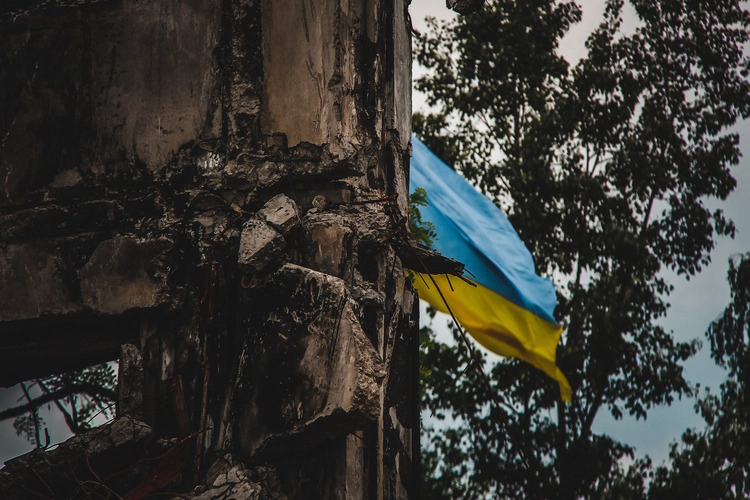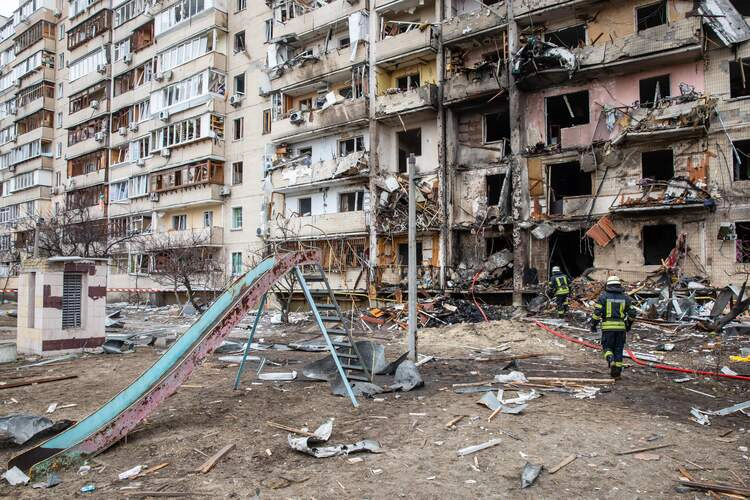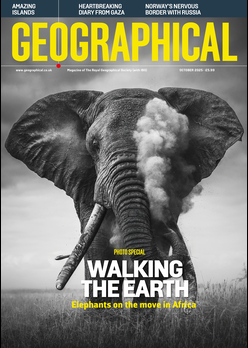
The bravery and resilience of a British volunteer on Ukraine’s Grey Zone, captured in tragic BBC documentary Hell Jumper
By
Just four days after the Russia-Ukraine war began, Chris Parry – a 28-year-old civilian with no military experience – flew from his home county of Cornwall to Poland, entering Ukraine to join an international community gathered to help evacuate civilians amidst the devastation.
During his time in Ukraine, Chris personally evacuated 400 individuals, and likely many more – and it is Hell Jumper that captures the true realities of his life on the frontline.
As you watch Hell Jumper, it’s increasingly obvious that Chris’ desire to help was characteristically Chris. Interviews with his parents, sister and friends all point towards Chris’ active, sociable, exuberant nature and his inability to sit at home and simply watch the suffering of Ukrainians. Although Chris kept diminishing the true extent of his activities back to his family and friends at home to stop them from worrying, Hell Jumper reveals the full story of his efforts.
The process of evacuating begins with a simple text message, containing the name and location of someone in need. It is then up to the volunteers to locate these individuals, who are often in the Grey Zone – the dangerous territory unoccupied either by Ukraine or Russia, where much fighting, bombing and destruction occurs.
Recorded footage from phones and body cams capture these evacuations, moments that take on the true scale of their chilling reality with every detail shown. In one extended clip, Chris frantically knocks on doors and searches in basements of several apartments – calling out ‘Evacuation, evacuation’. In another, he sprints across rubble-covered ground, away from the sound of gunfire, or he takes cover from an overhead drone alongside a colleague.
Nothing about the evacuations is easy: from the physical efforts to locating evacuees to the mental toll it takes on both them and the volunteers. One particular evacuee, an elderly woman, begins to sob as she walks away from her home with Chris and other volunteers. She is allowed only to take as many bags as three people – herself, Chris and another volunteer – can carry, and leaves the rest in her home. Evacuations are not just numbers or faceless statistics in Hell Jumper: they are rendered as real and individual events, each involving civilian lives that must be left behind as they know them and rebuilt.
Yet the gratitude for those whom Chris and others help is wonderful: in one clip, an elderly woman calls Chris her ‘little dove’ and ‘bunny’ after he helps to rescue her. As evacuees are bundled into vans, their thank-yous and appreciation are so meaningful, especially after seeing them just moments ago in an unlit and cramped basement awaiting help.

As well as the tense clips depicting life on the frontline, there are other moments interspersed within Hell Jumper that help to paint Chris’ life in Ukraine in the fullest sense. Chris laughs with his comrades in vans, smoking a cigarette out of an open window. Volunteers describe experiences of near-misses, Chris included – where he was found sleeping in a ditch after his van rolled over – but these seem to tighten the bonds between volunteers, who come together with strength and resilience.
Most insightful into his life in Ukraine – outside of his volunteer efforts – is the inclusion of the budding romance and eventual relationship with Olya, a Ukrainian volunteer also aiding efforts to support civilians. Impromptu Ukrainian language lessons given to Chris by Olya transform into exchanges of pet names, ‘I Love You’s and even humorous conversations about future children and what they will look like, all captured in bittersweet voice notes still on her phone.
Snatches of a life away from war – when Chris has a brief vacation with Olya in Switzerland – highlight their endearing love for one another. As Chris captures Olya against a backdrop of mountains and lush grass or films her eating outside, their affection is palpable, but set against the reality of Chris’ increasing involvement in more risky missions back in Ukraine, making the relationship increasingly tense, as Olya describes.
Ultimately, the tragic and distressing ending to Chris’ story is not the final message Hell Jumper wants to impart. Over the course of Chris’ time in Ukraine, from February 2022 to January 2023, his efforts to evacuate were unceasing despite growing risks to his own life. And it is this – the selfless and brave act to protect others which is the key takeaway from Hell Jumper: Chris’ extraordinary display of humanity whose legacy will endure for many years to come.




